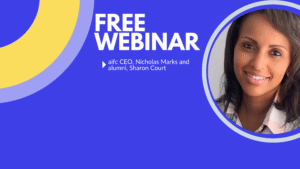All of us want to look good, live long lives, feel great and look fit. Those of us that manage our weight with healthy eating and regular exercise recognise that the responsibility for our own personal health and the way we look to others rests on our own shoulders.
Obese people are usually ashamed of their how they look, leading into mental health issues like low self-esteem, depression and anxiety. However there can be other more serious mental health problems at play leading to obesity, anorexia, bulimia and binge eating disorder.
Obesity
Food addiction is very real and many have used food for emotional comfort simply eating is a pleasurable experience making overeating and losing control a huge possibility that can cause physiological illness and have mental health consequences.
There are many factors that can contribute to the rise in obesity. Here are some to name a few:
- Low Income – Fresh fruit and vegetables plus meat costs a lot more. Low income families might have more carbohydrates and saturated fats in their diet.
- Food Tastes – Ethnic Customs and craving foods that are unhealthy, high in salt, sugar and saturated fats.
- Sedentary Lives – Lack of movement & not enough exercise due to sitting down all day.
- Mental Illness – Mental disorders have been linked to obesity.
- Takeaway foods – Quick, cheap and convenient take away foods areas are usually high in calories and saturated fat. The salt and sugar in many of these foods is high and these take away foods offer little or no nutritional value.
How Fat shaming Makes Things Worse
Fat Shaming is a term used to describe how obese people are often ridiculed and humiliated for being overweight. All over the world those with obesity are stereotyped as being unattractive, not taking responsibility, lacking will power and being lazy. Those who face public discrimination, derogation and devaluation due to being overweight can develop mental health problems or worse.
The Findings in a Study conducted into the effects of weight stigma in obesity looking at the various ways people deal with fat shame and how the body internalises it, contradicted popular belief that fat shaming or self-induced stigma motivate the obese person to eat healthy and to exercise, but instead contributed by adding stress.
Those who experience stigma due to their weight with fat shaming were more likely to develop depression and other mental health issues as a result.
Is the government responsible for what we eat or is the individual solely responsible?
Australia’s food industry is heavily regulated, but is it enough? In an article from ABC News titled, ‘Who is Responsible For Our Bulging Waistlines?’ NSW Minister for Healthy Lifestyles Kevin Humphries Told ABC News, “When it comes to issues around food integrity and lifestyle, we need to peel back the layers and target personal responsibility in particular, and community responsibility.”
When our eating becomes out of control behaviour it’s important that we reach out for help by talking to our doctor who can assess the problem taking into account your medical history, seek the help of a counsellor to help you overcome the psychological aspect tied in with overeating or see dietitian who can help draw up a plan for healthy eating. Fat shaming doesn’t motivate people but instead it makes them feel horrible about themselves.
Fat Shaming Online
Studies have shown that fat shaming also causes overweight people to eat more. Many discussions that take place on the internet and social media about overweight people are of a fat shaming nature. There’s a page on Facebook titled Fat people Insults. and there’s another simple called, ‘Fat People’. Most of these insults and put downs come from people who have never struggled with their weight. This behaviour is widely accepted and it’s very harmful to people with weight problems.
The bottom line is that fat shaming is BULLYING! It needs to stop. There’s no positive outcome.
Sources:
Mental Help – Psychological Consequences of Overeating
ABC News – Who is Responsible For Our Bulging Waistlines?’
Authority Nutrition – Fat Shaming Just Makes Things Worse
Where to Get Help in Australia
Talk to your doctor who can point you in the right direction.
Visit CCAA to search for a Christian counsellor near you.
Visit ACA to search for a counsellor near you.
Free 24/7 Counselling Services
Lifeline on 13 11 14
Kids Helpline on 1800 551 800
MensLine Australia on 1300 789 978
Suicide Call Back Service on 1300 659 467
Beyond Blue on 1300 22 46 36
Headspace on 1800 650 890








Have you thought about becoming a qualified counsellor? It’s a great opportunity to learn how you can extend God's love and grace to the hurting out in the community.
For those who would like to enrol in aifc’s accredited Christian counselling courses we have two intakes per year for courses commencing around the following months:
Enrolment Season - opens approximately 2 months prior to our courses commencing. Enrol online here during our enrolment season.
We also offer two modes of study:
A Master of Counselling course was introduced in 2018.